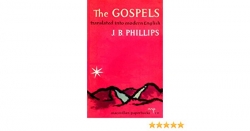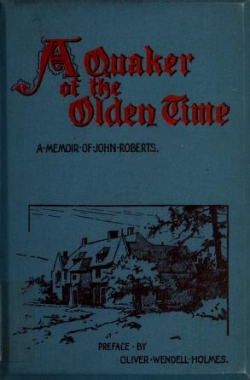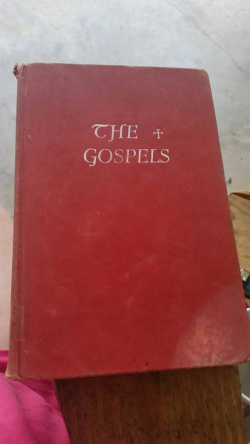Five Gospels, The

Buy online ($)
Type
Book
ISBN 10
0025419498
ISBN 13
9780025419490
Category
Bibles and Bible Studies: Bible Versions
[ Browse Items ]
Publication Year
1993
Publisher
Pages
640
Abstract
A new study of the gospels by distinguished biblical scholars determines, based on historical and literary factors, that twenty percent or less of sayings traditionally accredited to Jesus were actually uttered by him.
Review:
For nearly 100 years Biblical scholars have developed ways of telling when when a passage has been revised or edited, when two passages have been combined together, when a passage has been added to, when manuscript copyists (who wrote by hand) have skipped over words or added in a correction or comment as if they were the words of the original author, and methods of telling which parts of a book are older and younger.
Unfortunately, it is the nature of scholars to disagree: each scholar must make a name for himself by promoting his own ideas. This obscures the historical consensus built by years of work.
This work was a valuable experiment in getting scholars to agree. It was a shock to many readers because it was deliberately not shrouded by jargon or presented only in a seminar for fellow specialists. (Scholars have realized that their conclusions upset people and many now hesitate to write in a way or forum where they might be overheard and understood.)
This book explains what New Testament scholars think is historical in the New Testament gospels (and Thomas, which is the only surviving non-canonical relative of the sayings lists and isolated miracle stories used as sources by the four gospel writers), to what degree, and why. After a century of meticulous work, very few scholars think the gospels were eyewitness accounts (for why read [[Throckmorton]]'s [Gospel Parallels]) or that ancient historians (and the gospel writers were biographers and theologians, not historians) wrote history without any addition of legend, hearsay, or ways of telling the story that made for a better tale than the original. (These were oral cultures where only epic poems, memorable prose stories, witty quips, and unusually wise teachings survived.)
It is a deliberate attempt to explain and to be clear about what Biblical scholars do and how they think. It was an attempt to summarize what 100 years of work has learned. The textual archaeology at the basis of these conclusions is the foundation of any training in Biblical scholarship and history: those who object wholesale have either missed 40 years of German scholarship or are afraid of making someone mad.
This book is a bit of a time capsule: since its publication there have been new archaeological and textual discoveries, further research, new academic trends, and the inevitable development of conclusions that come from further study and consideration. This book is helpful because it is intended for ordinary readers and it is unusually honest -- and the reaction to it seems to have frightened many scholars into other kinds of work or back into jargon. (Part of that is our fault for not being more public about our work as decades passed.)
Review:
For nearly 100 years Biblical scholars have developed ways of telling when when a passage has been revised or edited, when two passages have been combined together, when a passage has been added to, when manuscript copyists (who wrote by hand) have skipped over words or added in a correction or comment as if they were the words of the original author, and methods of telling which parts of a book are older and younger.
Unfortunately, it is the nature of scholars to disagree: each scholar must make a name for himself by promoting his own ideas. This obscures the historical consensus built by years of work.
This work was a valuable experiment in getting scholars to agree. It was a shock to many readers because it was deliberately not shrouded by jargon or presented only in a seminar for fellow specialists. (Scholars have realized that their conclusions upset people and many now hesitate to write in a way or forum where they might be overheard and understood.)
This book explains what New Testament scholars think is historical in the New Testament gospels (and Thomas, which is the only surviving non-canonical relative of the sayings lists and isolated miracle stories used as sources by the four gospel writers), to what degree, and why. After a century of meticulous work, very few scholars think the gospels were eyewitness accounts (for why read [[Throckmorton]]'s [Gospel Parallels]) or that ancient historians (and the gospel writers were biographers and theologians, not historians) wrote history without any addition of legend, hearsay, or ways of telling the story that made for a better tale than the original. (These were oral cultures where only epic poems, memorable prose stories, witty quips, and unusually wise teachings survived.)
It is a deliberate attempt to explain and to be clear about what Biblical scholars do and how they think. It was an attempt to summarize what 100 years of work has learned. The textual archaeology at the basis of these conclusions is the foundation of any training in Biblical scholarship and history: those who object wholesale have either missed 40 years of German scholarship or are afraid of making someone mad.
This book is a bit of a time capsule: since its publication there have been new archaeological and textual discoveries, further research, new academic trends, and the inevitable development of conclusions that come from further study and consideration. This book is helpful because it is intended for ordinary readers and it is unusually honest -- and the reaction to it seems to have frightened many scholars into other kinds of work or back into jargon. (Part of that is our fault for not being more public about our work as decades passed.)
Description
Hardcover. Good condition, a little dirty and cover worn. Keep.
Number of Copies
1
| Library | Accession No | Call No | Copy No | Edition | Location | Availability |
|---|---|---|---|---|---|---|
| Main | 666 | 1 | Yes |




